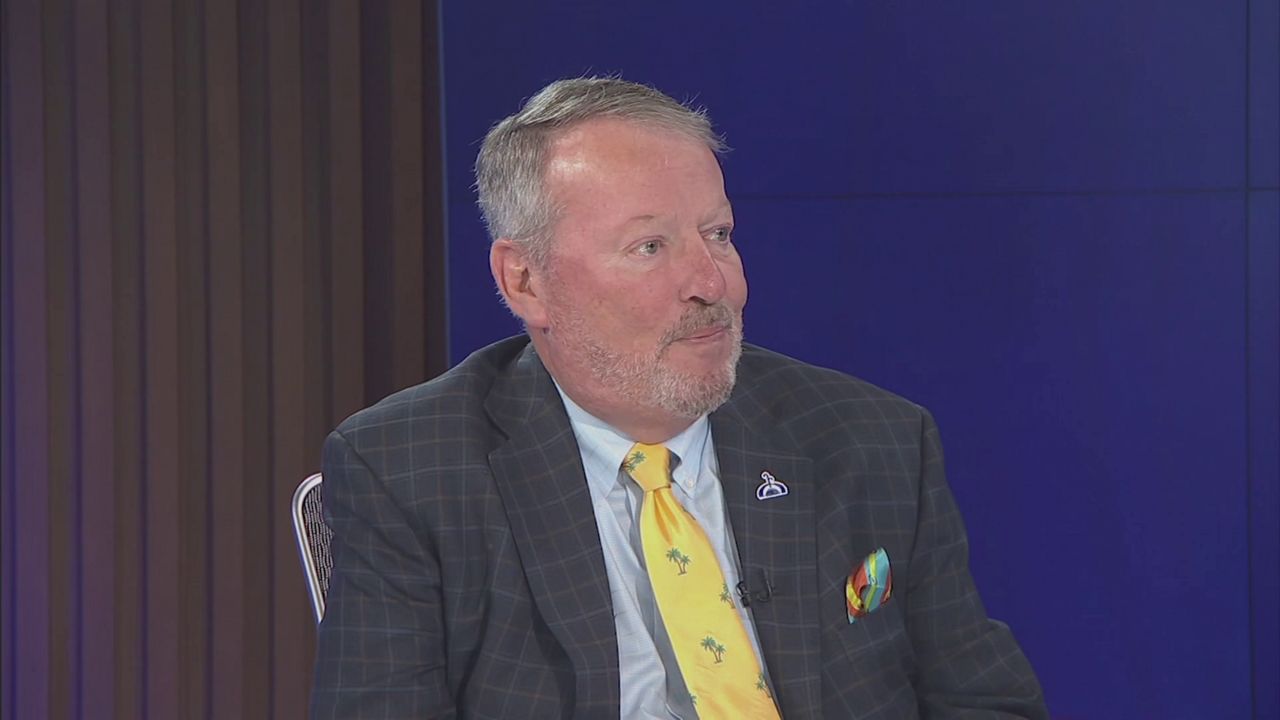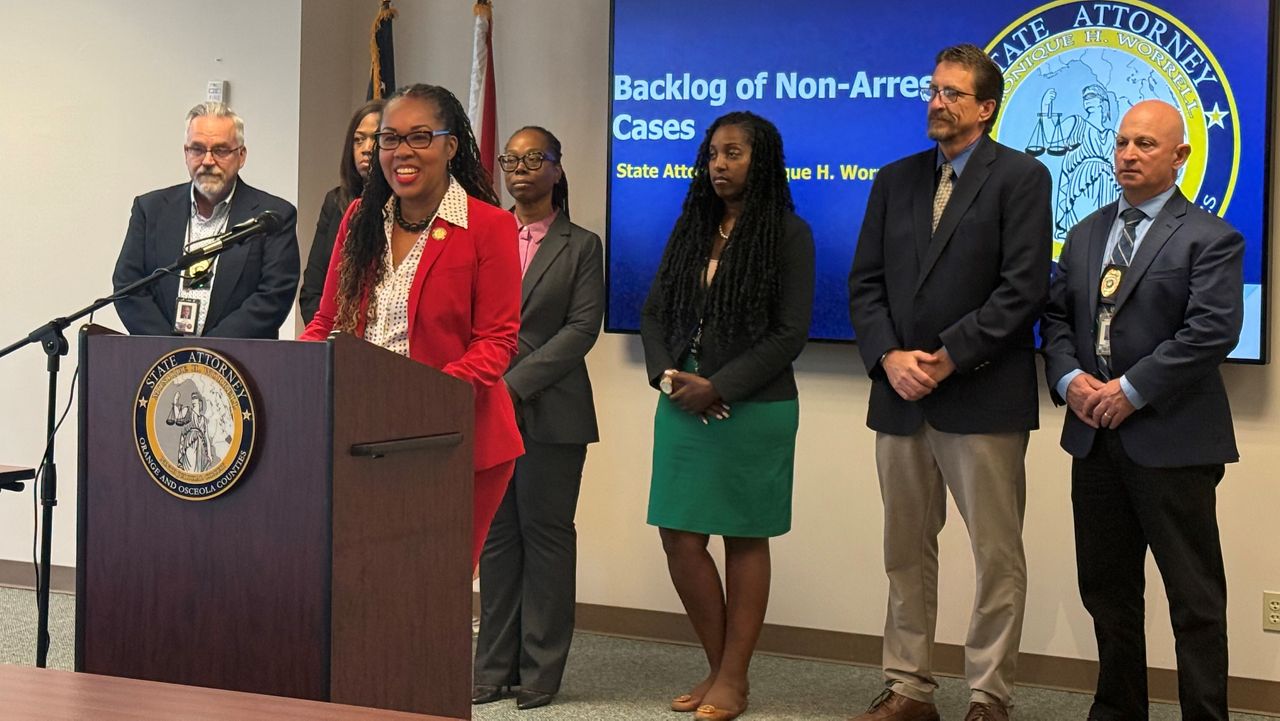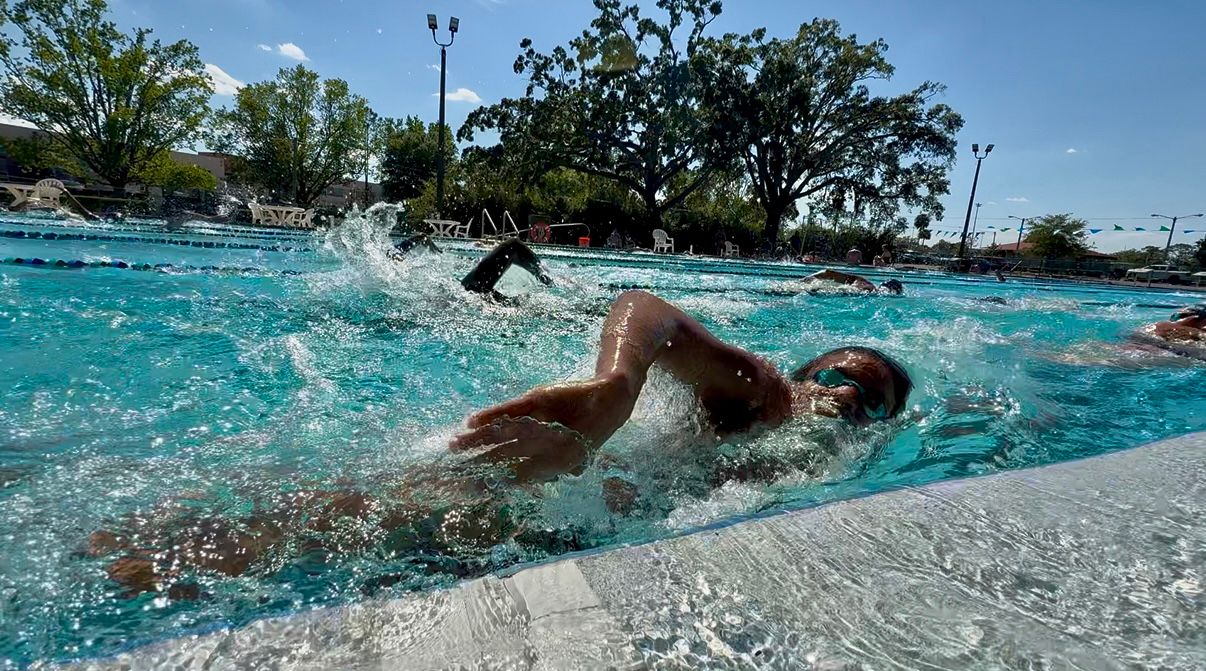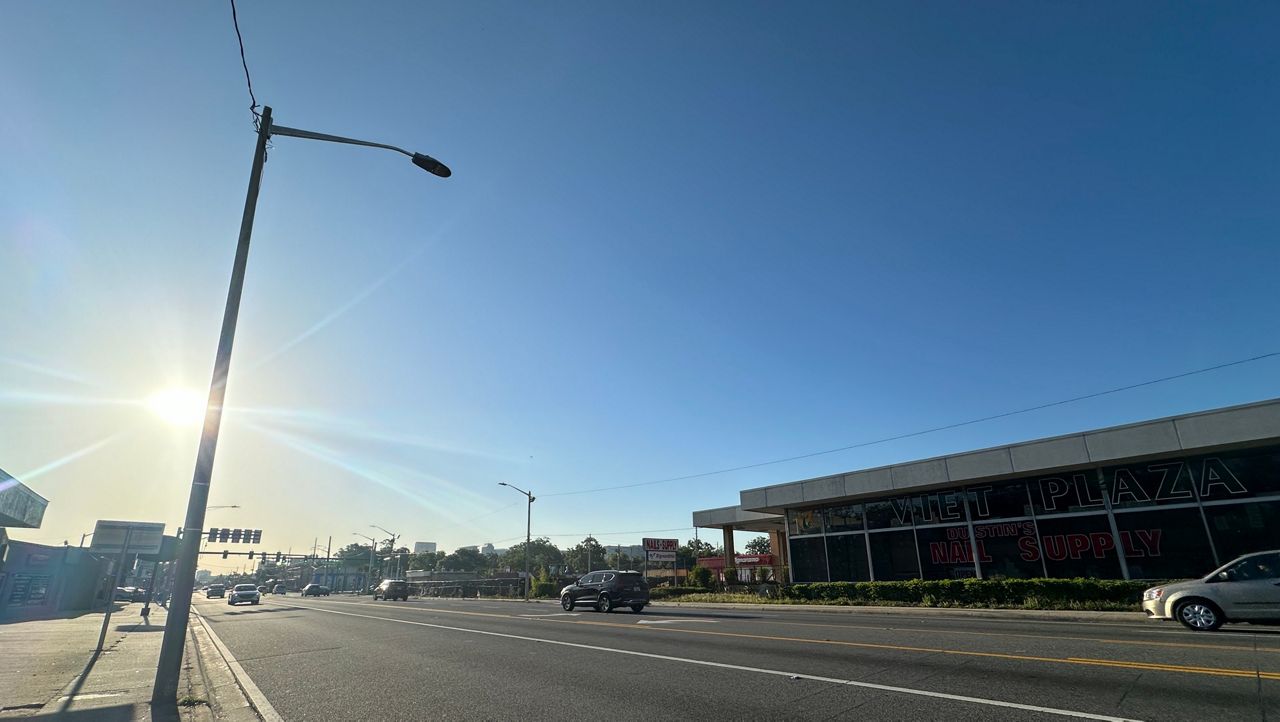Oct. 1 marks the start of a new fiscal year in Florida and the date when several laws approved by the Florida Legislature last spring take effect — including one that aims to end public sleeping and or camping in public places.
Florida Gov. Ron DeSantis said that the law, House Bill 1365, is an effort to "combat homelessness," and it prohibits counties or municipalities from allowing public sleeping or camping in public places, with few exceptions.
The measure mimics local ordinances passed in Orange and Seminole counties in the past year that allow law enforcement to take action against anyone "blocking" the right of way in public streets or on sidewalks. "Blocking" is defined as standing, sleeping and lying down or other similar actions.
The law is one of several new measures put in place to start Tuesday, but it has generated opposition from organizations that advocate for the homeless.
Martha Are of the Homeless Services Network (HSN) has argued that this type of measure disproportionately affects people experiencing homelessness, though the law itself doesn't directly state that its focus is on that segment of the population. She said the law comes at a particularly bad time because a decline in funding for local organizations, combined with the growing number of people experiencing homelessness, make it difficult to provide proper transitions into housing.
Earlier this year, numbers from the Point-in-Time Census indicated that the number of people experiencing homelessness, specifically those living on the streets, in their cars or in the woods across at least three Central Florida counties nearly doubled in the past year.
“If you look back over the last three to five years, our community received substantial federal funding connected to COVID that supported homeless programs," Are said. "But most of that funding has come to an end, and what you are seeing now is that most of that funding that is ending is (to) organizations, including our own, seeing a decrease in the funding that we have compared to a couple of years ago.”
Violators of the law could be cited and even arrested if they refuse to comply, but Ninth Judicial Circuit State Attorney Andrew Bain said that he doesn’t really want to criminalize people for not having anywhere else to go.
Are said her group, and others, are working to educate Floridians about the issue.
“We are trying to educate both our policymakers and the community about the importance of investing in the solutions," Are said. "And we’re trying to make sure that people are aware of what the solutions are so that people can make strategic investments and encourage their policymakers and their representatives to do that as well."
In recent weeks, Orlando lawmakers tabled at least one effort that could have served as a potential solution. That proposal called for the creation of an all-access, 24/7 shelter in the District 5 community.
Many residents of that community objected, saying they did not want another resource center within the district. City officials have said they will look into other potential locations for the shelter, but it’s unclear when the topic will be reconsidered.
In Volusia County, the Park Volusia local ordinance also went into effect Tuesday. Volusia County residents can register their vehicles to drive on the county's beaches and in off-beach parking lots for free. Residents can apply at Park Volusia on South Atlantic Avenue in Daytona Beach Shores.
Those who don't live in Volusia County have to pay $30 for beach driving day pass. An annual pass costs non-residents $150.
Among the other state bills that went into effect Tuesday are:
HB 7001: Reporter of Child Abuse, Abandonment, or Neglect
The law calls for any person who knows or suspects that a child is abused, abandoned, or neglected by a parent, legal custodian, caregiver, or other person responsible for the child's welfare to report such information or suspicion to the Department of Children and Families central abuse hotline. Current law provides a public record exemption for the name of any person reporting child abuse, abandonment, or neglect, as well as other identifying information of such reporter. The bill saves from repeal the public record exemption concerning all identifying information of a person other than a person's name, which is already protected by law reporting child abuse, abandonment, or neglect.
The bill (Chapter 2024-39, L.O.F.) saves from repeal the current public records exemption making information concerning preregistered voter registration applicants — 16 or 17 years old — confidential and exempt from public inspection and copying requirements. The bill also authorizes disclosure of certain information related to voter registration that is otherwise confidential and exempt, including the protected information related to preregistered voters, to another governmental entity if disclosure is necessary for the receiving entity to perform any required duties directly related to election administration.
The bill saves from repeal current public records exemptions for all secure login credentials held by the Commission on Ethics for the purpose of allowing access to the electronic financial disclosure filing system; and information entered into the system for purposes of making the disclosure.
SB 7006: Utility Owned or Operated by a Unit of Local Government
The bill amends s. 119.0713(5), F.S., to save from repeal the public record exemption for the following information held by a utility owned or operated by a unit of local government (i.e., municipal utility): Information related to the security of the technology, processes, or practices that are designed to protect the utility’s networks, computers, programs, and data from attack, damage, or unauthorized access, which information, if disclosed, would facilitate the alteration, disclosure, or destruction of such data or information technology resources.
Information related to the security of existing or proposed information technology systems or industrial control technology systems, which, if disclosed, would facilitate unauthorized access to, and alteration or destruction of, such systems in a manner that would adversely affect the safe and reliable operation of the systems and the utility and customer meter-derived data and billing information in increments less than one billing cycle.
The bill also amends s. 286.0113(3), F.S., to save from repeal the exemption from public meeting requirements for any portion of a meeting that would reveal the protected information specified above. Recordings or transcripts of the exempt portions of meetings will also remain protected pursuant to that subsection. These exemptions will also be subject to a repeal date of Oct. 1, 2027.
HB 7007: Campus Emergency Response
The bill saves from repeal the public records exemption making exempt from public inspection and copying requirements any portion of a campus emergency response held by a public postsecondary institution, a state or local law enforcement agency, a county or municipal emergency management agency, the Executive Office of the Governor, the Department of Education, the Board of Governors of the State University System, or the Division of Emergency Management. Likewise, the bill saves from repeal the exemption to public meetings requirements for that portion of a public meeting which would reveal information related to the campus emergency response. The bill also removes a provision of the exemption that authorizes such entities to disclose the exempt information in specified circumstances, as these entities are not prohibited under public records and meeting requirements from disclosing the information.
SB 7008: Department of the Lottery
The bill continues the exemptions from public disclosure for records held by the Department of the Lottery related to the operations and processes of the department. The measure said the exemptions are necessary to protect the security and integrity of lottery operations and to allow the department to participate in multistate lottery games. Information held by the department is designated as confidential and exempt but may be disclosed to other governmental entities in the performance of their duties. Public records exemptions relating to the lottery cybersecurity will be subject to a new repeal date of October 2, 2027. This will correspond with the repeal date for the review and repeal date for the general cybersecurity exemptions under ch. 119, F.S.
HB 7009: Mental Health Treatment and Services
The bill saves from repeal the public records exemption in the Florida Mental Health Act relating to all petitions for voluntary and involuntary admission for mental health treatment, court orders, and related records that are filed with or by a court pursuant to a Baker Act.
HB 7043: Agency Personnel Information
The bill continues the series of current public record exemptions in s. 119.071(4)(d), F.S., that protect the personal identifying information of specified agency personnel, their spouses, and children, when held by an agency. Personal identifying information can include the individual's home address, telephone number, date of birth, and location of childcare facilities. The agency personnel who are covered by this public record exemption, due to the nature of their employment, include law enforcement, DCF, Department of Health, Department of Health, Department of Financial Services, current or former state attorneys, assistant state attorneys, statewide prosecutors and assistant statewide prosecutors, current or former firefighters and many other agency personnel.











